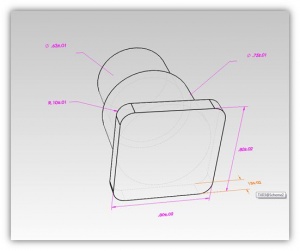Difference between revisions of "End-Scan Using the Scissor Motion"
From ATTWiki
(→Measure the Target) |
(→Approve the Measurement On the Screen) |
||
| Line 47: | Line 47: | ||
| − | + | ||
| − | + | ||
| − | + | ||
| − | + | ||
| − | + | ||
| − | + | ||
| − | + | ||
| − | + | ||
| − | + | ||
| − | + | ||
| − | + | ||
| − | + | ||
===Using End Target Adapters=== | ===Using End Target Adapters=== | ||
Revision as of 22:41, 27 January 2012
|
|
Why the End-Scan technique is important
|
This end-scan method is useful for ease-of-use and quickness.
|
How To Use This End-Scan Technique
|
Using End Target Adapters
|
|
- Back to VTube-LASER




